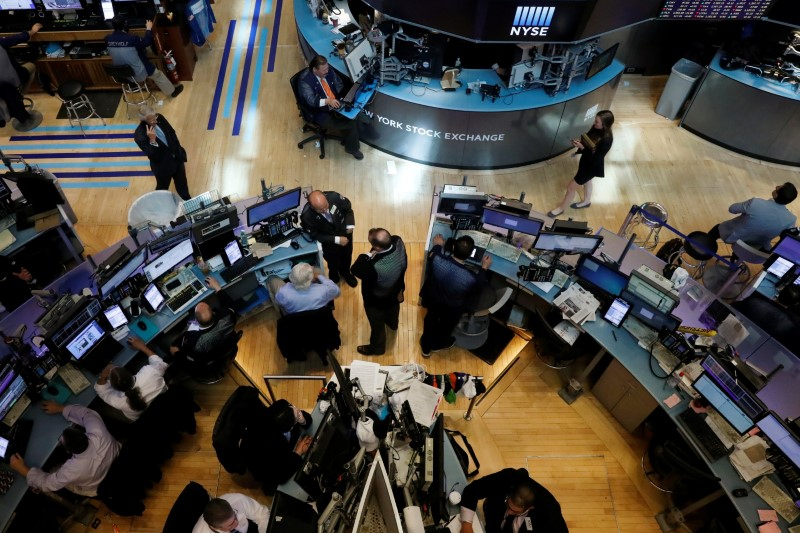Taliban Victorious, Chinese Economy Slows, Oil Falls – What’s Moving Markets By Investing.com

By Geoffrey Smith
Investing.com — The Taliban has taken control of the Afghan capital Kabul amid a chaotic evacuation of remaining westerners. The Chinese economy is slowing down due to the clampdown on localized outbreaks of Covid-19 across the country. That’s also hitting oil prices. And U.S. stocks are set to open lower amid reports of the Federal Reserve plotting a speedy exit from asset purchases. Here’s what you need to know in financial markets on Monday, 16 August.
1. Taliban overruns Kabul
The Taliban recaptured the Afghan capital of Kabul, 20 years after being driven out by U.S. forces and only weeks after President Joe Biden announced the withdrawal of those troops. Only a month ago, Biden had said there was no likelihood of the U.S.-trained government forces being overrun.
At least five people were killed in chaotic scenes at Kabul airport that recalled memories of the 1975 evacuation of Saigon at the end of the Vietnam War.
Taliban spokesmen quoted in various reports have pledged a peaceful transition but nonetheless promise to reimpose their strict interpretation of Islamic law in the country.
2. Chinese data point to slowdown
China’s economy is slowing down due to the increasing restrictions it has imposed to stop the spread of the delta variant of Covid-19.
Industrial production and retail sales data for July, released overnight, were both lower than expected. Output growth slowed to 6.4% from 8.3% in June, its slowest rate since September last year. Retail sales growth meanwhile slowed to 8.5% from 12.1%, its slowest rate in six months.
Investment in fixed assets, historically the biggest driver of GDP growth in China, likewise slowed more than expected to only 10.3% growth from 12.6% in June.
China’s zero-tolerance approach to Covid-19 outbreaks shut a terminal at the world’s third-largest port of Ningbo-Zhoushan last week, suggesting that constraints on the country’s external trade are likely to be a feature of upcoming data.
3. Stocks set to open lower; Fed reportedly eyes speedy exit from QE
U.S. stock markets are set to open lower later, chiefly on the back of Chinese data that have again dented the global growth outlook.
By 6:15 AM ET (1015 GMT), Dow Jones futures were down 157 points, or 0.4%, while S&P 500 futures were also down 0.4% and Nasdaq 100 futures were down 0.3%.
Also weighing on sentiment was a Wall Street Journal report claiming that the Federal Reserve is looking at ending its asset purchases by the middle of next year, implying a quicker phase-out of quantitative easing than in 2013, when it began to tighten policy after the Great Recession.
4. Crypto hits $2 trillion market cap again
The crypto universe reclaimed a market valuation of $2 trillion, after a broad-based rally fired by changes to the way the Ethereum blockchain will work in future.
Ethereum plans to move away from the ‘proof of work’ model that requires vast amounts of computing power to mine new coins, an attempt to counter the narrative that cryptocurrencies are environmentally harmful because of their carbon footprint. Also helping sentiment has been evidence of bipartisan support for the industry in Washington, despite its failure to ensure favourable tax treatment in the wording of last week’s infrastructure bill.
By 6:15 AM ET, Ethereum was up 4.3% at $3,286, while Bitcoin was up 3.0% at $47,286. Dogecoin was also up 13% and Cardano, which rallied some 50% last week, gained 2.2%.
5. Oil prices slide as Chinese fuel output hits 14-month low
Crude oil prices tumbled again after China’s weak economic data raised doubts over the trajectory for global demand. The industrial production data released earlier showed that independent refiners cut their average daily throughput to the lowest level since May last year.
By 6:30 AM ET, U.S. crude futures were down 1.4% at $67.25 a barrel, while Brent futures were down 1.3% at $69.70.
Data on Friday from the Commodity Futures Trading Commission had shown that money managers cut their net long positions in crude futures and options by nearly 10% in the week through Aug. 10, suggesting that the short-term momentum of the market is weakening considerably amid fears that the pandemic won’t, after all, be controlled this year.

